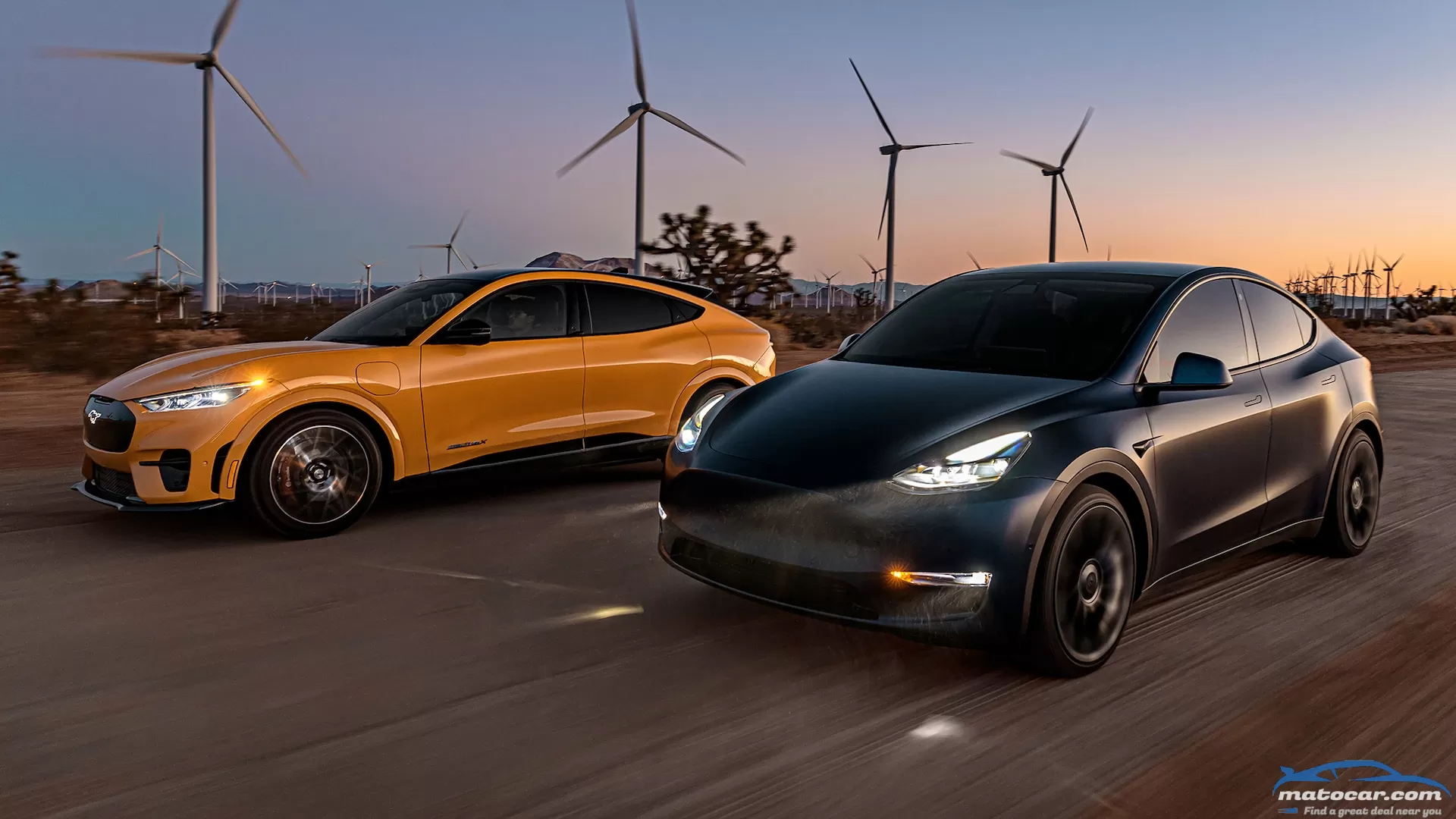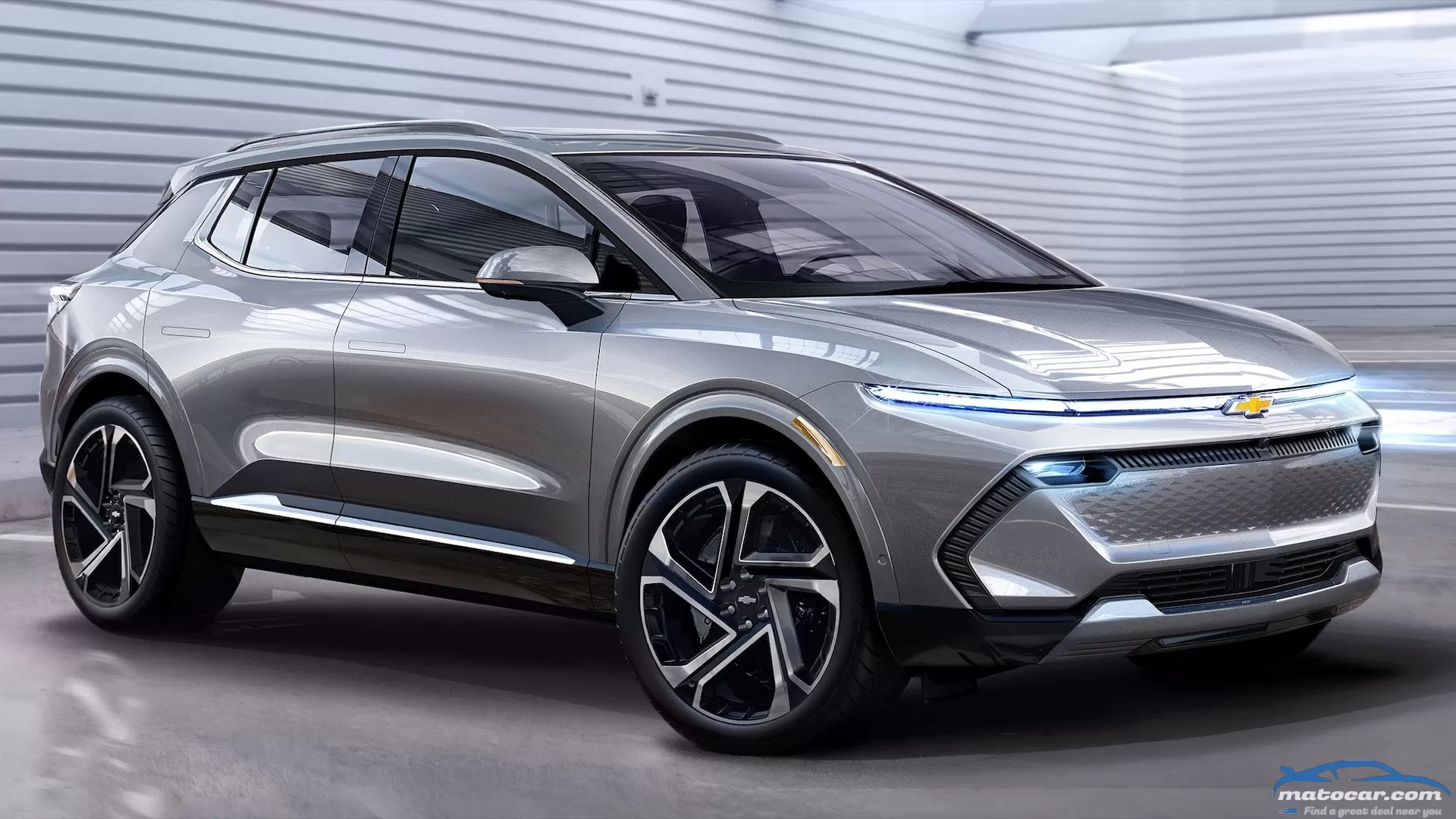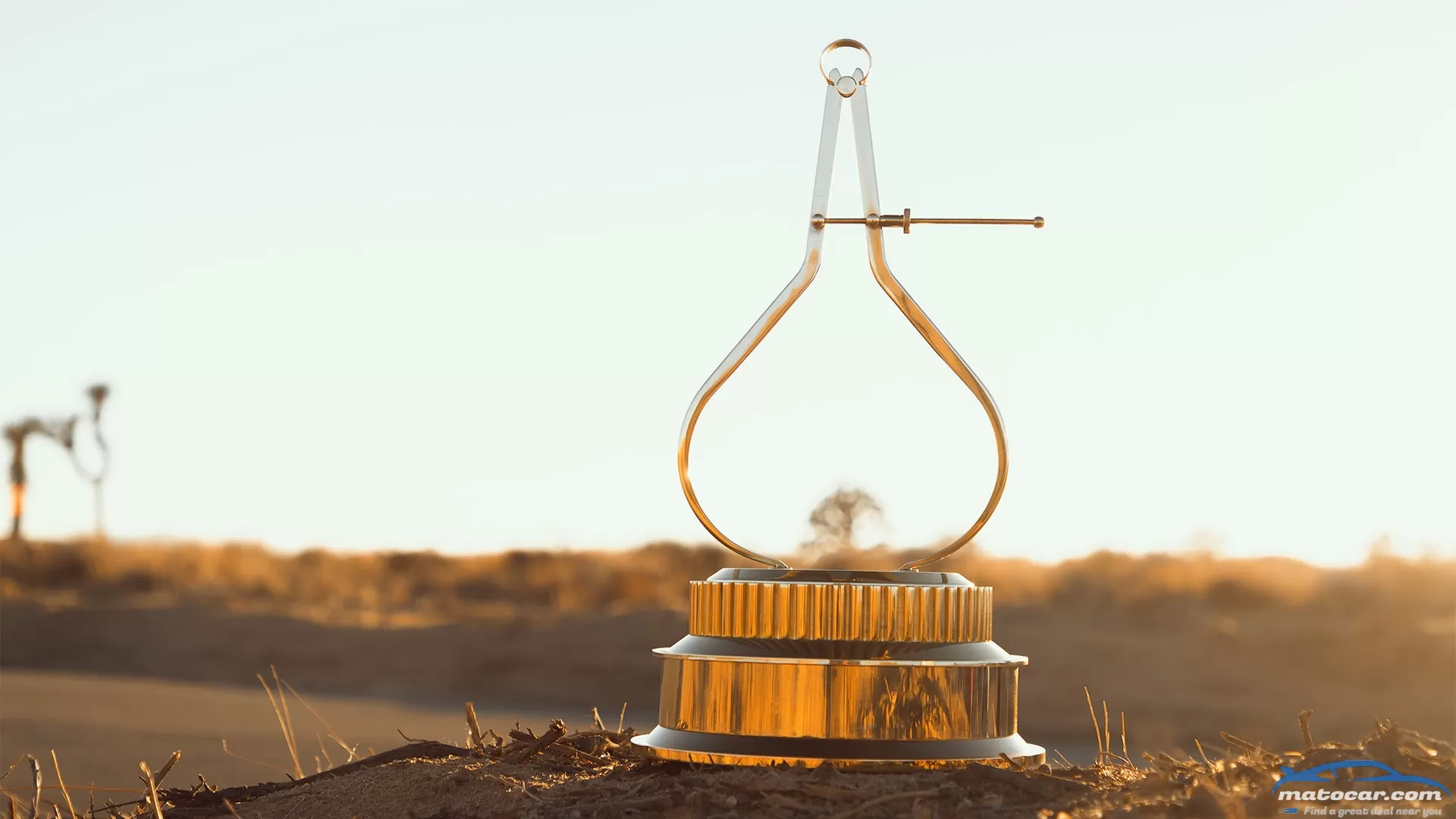EVs Are Way, Way More Energy-Efficient Than ICE-Powered Vehicles

Out of the 8.9 million barrels of gasoline consumed daily in the U.S. on average, only 1.8 million gallons, or approximately 20 percent, actually propel an internal combustion vehicle forward. The other 80 percent is wasted on heat and parasitic auxiliary components that draw away energy. As the world begins its shift to EV proliferation, the good news is electric vehicles are far more energy efficient on the road.
A new set of graphics from Yale Climate Connections makes visualizing the efficiency gains of an EV over an ICE vehicle straightforward. Using data from fueleconomy.gov and the U.S. Energy Information Administration, these graphics break down the energy waste in your typical gas-powered car.
The vast majority of energy wasted in an ICE vehicle is through the heat the engine produces, which you can literally feel radiating from under the hood. About 5 percent is lost through parasitic engine components including the cooling system, which draws on the engine's own energy to help cool it down, about 4 percent is lost through the mechanical friction of the drivetrain and transmission components, and another 2 percent could be lost to auxiliary electrics like heated and powered seats, lights, and infotainment systems. In total, approximately 75 to 84 percent of the original gasoline's energy is lost.
Compare that to only 31-35 percent energy loss in the average electric vehicle (average EV battery size is about 63 kWh), before factoring in potential recuperation from energy regeneration. Its losses can be broken down into approximately 10 percent of the source energy from the grid lost in the charging process, 18 percent lost to the drivetrain motor components, up to 4 percent lost to auxiliary components, and another 3 percent lost solely from powertrain cooling and other vehicle systems.
Comparing the two, "the rough math pencils out to the energy equivalent of around 2 million barrels of gasoline per day, which is a substantial savings over the 8.9 million barrels currently used," according to Yale Climate Connections. But what about the power plants used to "refuel" those electric cars? Are they any more efficient than gas-powered cars? Well, yes. Much more efficient, in most cases.
"Even if the grid were entirely fueled by coal, 31% less energy would be needed to charge EVs than to fuel gasoline cars. If EVs were charged by natural gas, the total energy demand for highway transportation would fall by nearly half. Add in hydropower or other renewables, and the result gets even better, saving up to three-fourths of the energy currently used by gasoline-powered vehicles," according to Yale Climate Connections. Right now, all of that energy is getting lost mostly to heat. What a waste. For more facts and figures, read the full Yale Climate Connections report here.
You may also like
General Motors created big hype at CES 2022 with the unveiling of the 2024 Chevrolet Silverado EV, its most affordable full-size electric pickup truck yet. But equally key was the announcement that a $30,000 electric Chevrolet Equinox crossover and a larger electric Chevrolet Blazer SUV are coming in 2023.The trio of high-profile Chevy vehicles were among the initiatives outlined by General Motors Chair and CEO Mary Barra as part of her virtual keynote address at CES 2022. Barra delivered her address virtually from the Fox Theater in Detroit. She used the stage to show the new electric Chevy Silverado (and a new Trail Boss off-road variant) and add that GM will be introducing electric heavy-duty vehicles as well by 2025.Electric 2024 Chevrolet Equinox Due Fall 2023But back to that 2024 Chevy Equinox EV, which will go on sale in the fall of 2023. Launching with both fleet and retail versions, the electric Equinox will be several notches less boring than the gas-fed model on sale today. The first released images show a crossover that is more sleek and modern than a conventional Equinox, with more dramatically sculpted sides.We know there will be at least two trim levels: LT and RS. One image shows a two-tone red and black interior (obviously the RS) and enough screens to cover almost two-thirds of the dash. Another image shows a silver interior with a more conservative silver and black color exterior scheme, with more body-color elements on the nose than the aggressive RS.The Equinox EV was designed to offer an affordable, high-volume electric vehicle for the Chevy brand as GM attempts to offer EVs in all segments and price points.Electric Blazer Will Be Shown This YearBefore the Equinox arrives, the 2024 Chevrolet Blazer EV will go on sale in the spring of 2023. Barra did not offer a visual preview of the Blazer, though at least at this juncture we're wondering how daring GM's designers will get with that model, given how saucy the Equinox EV looks. In Chevy's lineup today the Blazer (pictured above)is far sportier and overtly Camaro-inspired relative to the conventional, fairly conservative Equinox; should that hierarchy hold with these EV versions, buckle in the for the electric Blazer.Even though the Blazer will come sooner, GM has provided few details. We are promised it will debut later this year and will be priced right—which is key given the conventional Blazer suffered from a high sticker price that deterred some buyers who were otherwise attracted to its muscular good looks.Ultium Platform for AllThe new electric vehicles will use GM's Ultium EV platform created in 2020 and which powers the 2022 GMC Hummer EV electric pickup now on sale.Still to come are electric versions of the Silverado and GMC Sierra pickups and a number of SUVs including the 2024 GMC Hummer EV SUV, the 2023 Cadillac Lyriq mid-size SUV, the Equinox and Blazer, and crossovers planned for the Buick brand.Cadillac will also have the Celestiq flagship limo-like sedan with a hatch instead of a trunk.Ultra Cruise Coming on CelestiqThe handbuilt Cadillac Celestiq will be among the first vehicles to be equipped with UItra Cruise, which offers door-to-door hands-free driving, Barra said. Ultra Cruise goes into production in 2023 and can handle the driving with no input in about 95 percent of driving scenarios, Barra says. Soon it will be OK for use on all paved roads in the U.S. and Canada.Ultra Cruise is the next level up from Super Cruise, GM's highway hands-free driving technology. Super Cruise will be available on 22 models by 2023 as the automaker continues to roll it out across all lineups. Super Cruise has been enhanced to provide more functions such as automated lane changes.GM says it will be the first company to use Qualcomm Technologies' SnapDragon Ride Platform for advanced driver assistance technology that incorporates software developed inhouse by GM. "Co-developed by GM and Qualcomm for Ultra Cruise, the new computer architecture will have the processing capability of several hundred personal computers but is only about the size of two laptops placed on top of one another," GM says.BrightDrop Orders Adding UpOn the commercial vehicle side, GM's new BrightDrop division announced further orders by FedEx and a sourcing agreement with Walmart to supply the BrightDrop EV600 electric delivery van and add the smaller EV410 when it goes into production in early 2023.After an initial order of 500 vans, FedEx is adding 2,000 more over the next few years and negotiating another 20,000 in the years to follow. BrightDrop is also working with FedEx to meet the needs for a larger 1,000-cubic-foot van in the future. Under the naming formula already established, it could be the EV1000.Walmart announced it will add a fleet of 5,000 BrightDrop vans, starting in 2023, to expand its InHome delivery service. Walmart also uses Cruise for autonomous deliveries.Barra said GM still aims to deliver its first personal autonomous vehicle as soon as mid-decade.GM, Honda and Cruise are working to test and validate the Cruise Origin self-driving rideshare vehicle that is on track for commercialization in coming months.This is the second year that GM has used CES to outline a wide swath of plans and ideas centered on a future of electric and autonomous mobility.
Welcome to MotorTrend's inaugural Performance Vehicle of the Year (PVOTY) competition. A quick history: We've awarded our Car of the Year title since 1949. In 1978, we added Truck of the Year and then SUV of the Year in 1999. Alongside Person of the Year, these have been our automotive Of The Year awards for decades. Until now.Why, and why now? It's instructive to look back at MotorTrend's old Import Car of the Year. First awarded in 1970, the idea of ICOTY was to finally acknowledge an indisputable truth: Cars from auto manufacturers outside of America were here to stay and should be celebrated, at least for a while.We awarded ICOTY alongside COTY until 1999, when my predecessors decided to fold the former back into the latter because shifts in automotive manufacturing and global economics challenged the notion of what constitutes foreign and domestic vehicle production. What is a car's country of origin if the engine is made in Brazil, the body panels are stamped in Canada, the transmission and wiring harness are produced in Mexico, and final assembly occurs in Michigan? Or if multiple factories around the world assemble the same vehicle? Our editorial forebears ultimately decided none of this matters and that the inherent goodness of the car, the breakthrough experience it delivers, and how history would view it were much more important.They read the room and made the right call, which is what we are doing here with our focus on performance. I submit to you the following:We live in a golden automotive age. Thirteen years ago, we reported the horsepower wars were over. We were wrong. To twitch an eyebrow these days, you need at least 500 hp, if not four figures for tongues to really start wagging. This inflation is not just limited to hyper-expensive exotic cars. For $37,000, you can buy a Ford Mustang GT with 460 ponies. Need more vroom? Try the 505-hp Alfa Romeo Stelvio. Or if you need to move a couch, in a hurry, up a sand dune? The 702-hp Ram 1500 TRX has you covered.These power and torque increases, along with all the fancy systems that allow their delivery, have resulted in a golden age of performance, as well. Those who monitor lap records at the vaunted Nürburgring Nordschleife know what I'm talking about. It used to be that a stock production car lapping the iconic German test track in less than 8 minutes joined an exclusive club. Now, a hot hatch like the Honda Civic Type R is quicker than that, and we see Porsches, Mercedes-AMGs, and Lamborghinis running in the 6:40 (or quicker) bracket. Our own testing bears this out; in the past two years, we've seen our 0-60 record fall twice—first to less than 3.0 seconds and then to almost less than 2.0. This is bonkers.Megawatt advances in automotive tech are responsible for a lot of this golden-era shine. While one of the highest-horsepower production cars is still a 16-cylinder, quad-turbo, gas-burning Bugatti Chiron Super Sport, you can order our electrifying 2022 Car of the Year Lucid Air with up to 1,111 hp, or a Tesla Model S with 1,020 hp. On the truck side, the Hummer EV pickup is also available with 1,000 hp, and our 2022 Truck of the Year, the Rivian R1T, comes standard with 835 hp. Oh, and the two vehicles that broke our 0-60 record? Electric all-stars from Porsche and Tesla.As we continue to cover the evolution of the automobile and the automotive industry, we believe our electrified future is inevitable, so we're going to walk a second, parallel path with all the existing, mostly gas-burning vehicles we know and love.Internal combustion technology has never seen higher outputs, greater efficiency, or more thrills per cubic inch than right now. But as more carmakers trumpet about going all in on EVs, we receive quietly distributed notices about their final run of internal combustion engines, starting with the burliest V-10s and V-8s. Exiting right alongside: manual transmissions.We know some of you mourn the coming loss of dropping the clutch, mashing the gas, and ripping your right hand through six or seven gears. You loudly curse this transition; we hear you and understand. Every year, for more than a decade, we sent dozens of staffers on the road for two weeks, testing and driving the world's top sports cars in search of the Best Driver's Car. But that BDC program has run its course; PVOTY is Version 2.0, built upon the belief it's possible to be excited for the future, embracing all the broken barriers to come, while celebrating the end of an era. That is what we set out to do with our Performance Vehicle of the Year. We're applying our decades of experience and rigorous, industry-leading Of The Year framework to the realm of performance machines, whatever body style they happen to come in.Time is short. The world is changing. So let's round up the stickiest-tired whoop machines—whether gas- or electron-powered—and smoke 'em while we got 'em (and can still drive 'em). Please enjoy our first MotorTrend Performance Vehicle of Year competition.
The 2022 Chicago Auto Show gave us our first real chance to crawl around the 2022 Jeep Grand Wagoneer Obsidian model, which went on sale late last year. As the name implies and as we explained at the time, this variant based on the mid-grade Series II trim caters to fans of the blacked-out look. The example shown in Chicago also gave us one of our first experiences of a bench-seat-equipped eight-passenger Grand Wagoneer. So let's climb into this latest 2022 Jeep Grand Wagoneer's interior and have a look around.



side.webp)
0 Comments